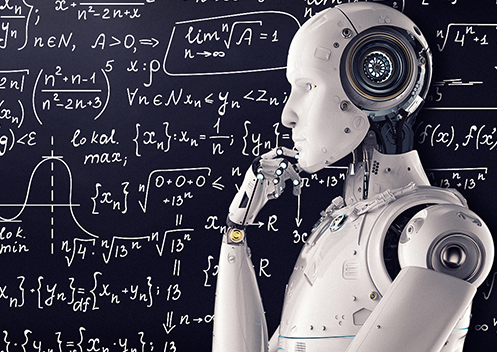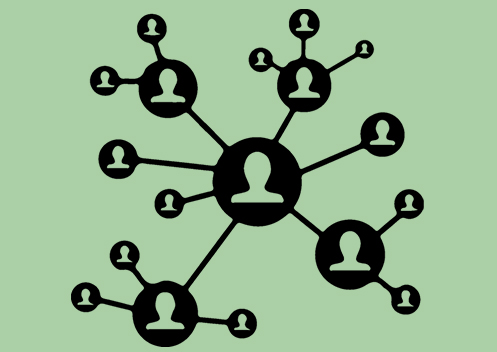Universities: Digital Transformation
July 25, 2023
Mankind has always been fascinated by automatons. Technological advances improve the quality of life because many tasks can be performed in a simpler and more convenient way. For example, the Western Industrial Revolution era rose because of technological and scientific discoveries that developed years prior. During the 19th century, the commencement of telecommunications surged with the invention of photography, the phonograph, and the telegraph. After decades of technological development, the 21st century strived for a new revolution with ties to communication, a new digital era, and the Internet. This changed the behavior of society because, for the first time in history, there were tools that allowed information to be sent and received instantaneously anywhere in the world. Data exchange and human interaction were simplified.
For instance, universities were initially limited to the conversion of digitization, such as converting analog sources into digital files (e.g., from a vinyl record to a CD). On the other hand, modern-day digital transformation is focused on artificial intelligence, virtual environments, cloud services, etc.
Unsurprisingly, digitization and the Internet provide greater benefits to higher education institutions. Firstly, documentation of scientific interest is easily accessible and communication between researchers is faster and cheaper. Teaching and learning have also benefitted from the redesigned process of technology. For example, online training amplifies inclusion and equality of opportunities, which reduced the digital gap. However, as previously mentioned in prior entries on our website (The Application of ChatGPT in Higher Education), most educational centers are searching for ways to adapt to the continuously evolving development of new technologies, such as artificial intelligence.

In addition, digitization has also provoked a social debate about its use and its opportunities (and risks), for students in higher education institutions. The use of new technologies in learning reinforces the idea that memorizing data is not necessary and can be accessed online. This may pose the question, does digitalization reduce the cognitive abilities of individuals? Does this idea represent a backward step in civilization in inverse relation to the technological process? Does communication between machines become more important than communication between humans? Is society willing to accept this technological dependence?
The everyday actions that are performed by computers, such as smartphones or tablets reveal a higher number of the imperatives that an average Internet user is exposed to: “book now”, “click”, “go to”, “share”, “reply”, “collaborate”, “add to cart”, etc. Actions that are carried out in the online environment are usually responses to “orders” issued by a machine. In addition, the world wide web has increasingly more and more data on each user as they provide it to facilitate the digital experience (for example, users have no qualms about saving their credit card data in a digital environment, so they don’t have to enter it again).
In general, universities also opt to conveniently use applications created by large technology companies (such as Google). It’s practical because they have computer engineers that can create their own programs well applied to the teaching process, research, and administrative tasks of the center. This will prove their value and worth as an innovative center and manage millions of data generated in the daily interactions between students, teachers, support staff, and machines. There are rare occasions when all this information does not remain in the higher educational institutions but goes to a large technology corporation, and the value of this information isn’t collected by the educational centers.
On the other hand, when adapting the educational offer to the new demands of the market, universities usually add the word “digital” to degrees that need updating. However, a complete restructuring of the academic plan of a degree is necessary because adding the word “digital” to a degree has become obsolete due to digitalization. For example, some universities offer Digital Business, Digital Journalism, Digital Law, Digital Product Management, Digital Leadership, Digital Graphic Design, or Digital Documentation. In some cases, it no longer makes sense to use the word “digital” because the only analogical study of this discipline is no longer conceived.
In conclusion, it is a great advantage to have the digitization of processes and technological advances in universities because it offers many tools that facilitate the work of teachers, students, and administrative staff. However, it’s essential to use these tools responsibly while considering the ultimate purpose of the task performed. For example, if a teacher asks a student to summarize a book, the student must bear in mind the purpose of the task is to learn how to synthesize a text and present ideas in a clear, coherent, and objective manner. It wouldn’t be beneficial to the student to download the summary directly from the web or to use artificial intelligence.
Hence, higher education institutions should raise the standards in training, because it’s easier and faster to obtain information and access a multitude of data. New assessment criteria should be adapted to determine the certainty of knowledge the student possesses. In this new environment, oral evaluation tests, face-to-face examinations (free of electronic devices), and direct teacher-student contact are of fundamental importance.





